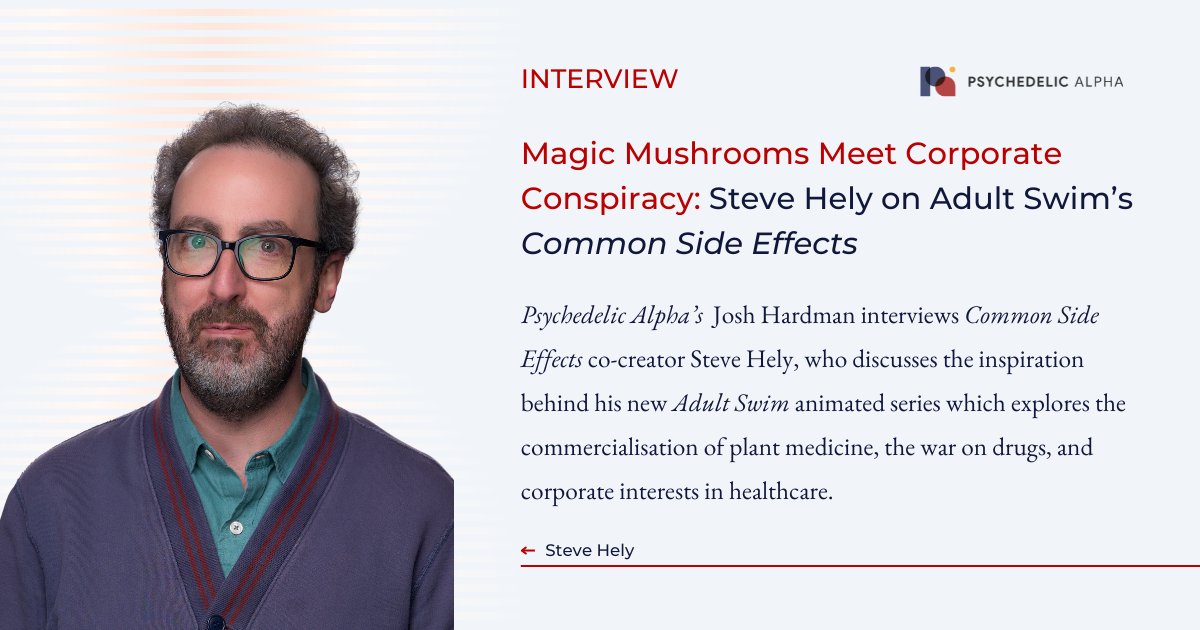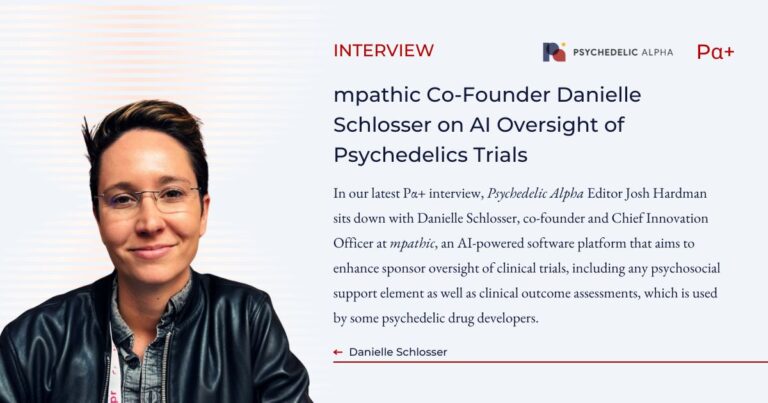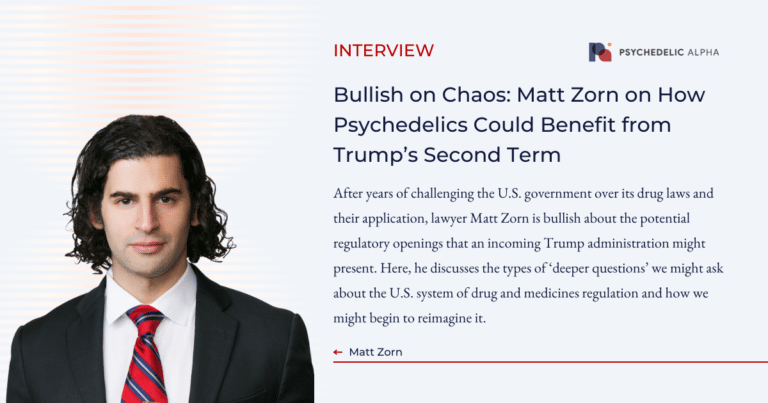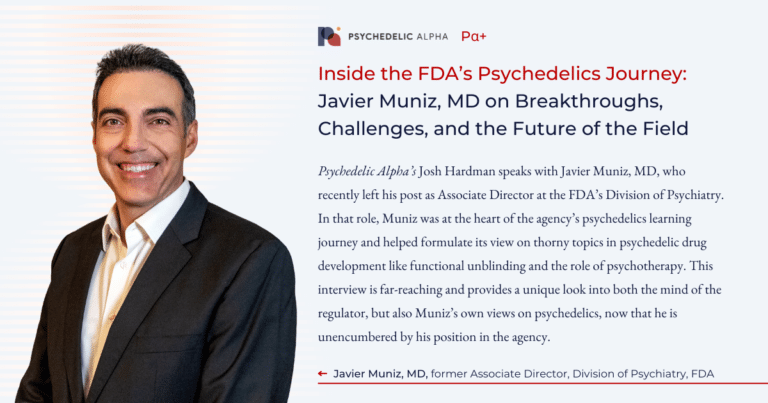An original animated series from Joe Bennett and Steve Hely explores many themes pertinent to the psychedelic renaissance including the commercialisation of plants and fungi, the war on drugs, and ‘magic bullet’ treatments.
One of the show’s main characters, Marshall, discovers a mushroom from the Peruvian Highlands that appears to be capable of healing nearly anything, but throughout the series he comes up against groups like the DEA, ‘big pharma’, and business interests who all aim to silence him.
In one scene, Marshall questions the CEO of fictional big pharma company, Reutical Pharmaceuticals, at an investor conference. “When will this company stop the destruction it’s causing not just to indigenous communities in the Peruvian Highlands [but] to rare local plants, to fungi, to an entire ecosystem?”, he asked the bumbling CEO. While asking his question Marshall is holding a potted Banisteriopsis, a plant commonly used in ayahuasca preparations.
“What if there were a medicine that could heal almost anything?” Marshall later asks the other main character, Francis. “But what if they didn’t want you to know about it?” ‘They’ being “big pharma, the insurance companies, the government,” Marshall continued; “think about all the people that make tons of money just from keeping us sick, by keeping us unwell.”
Having viewed the teaser for this show some time ago, I couldn’t help but reach out to its co-creator Steve Hely (Veep, 30 Rock, The Office) to learn more about what inspired the pair to create this storyline.
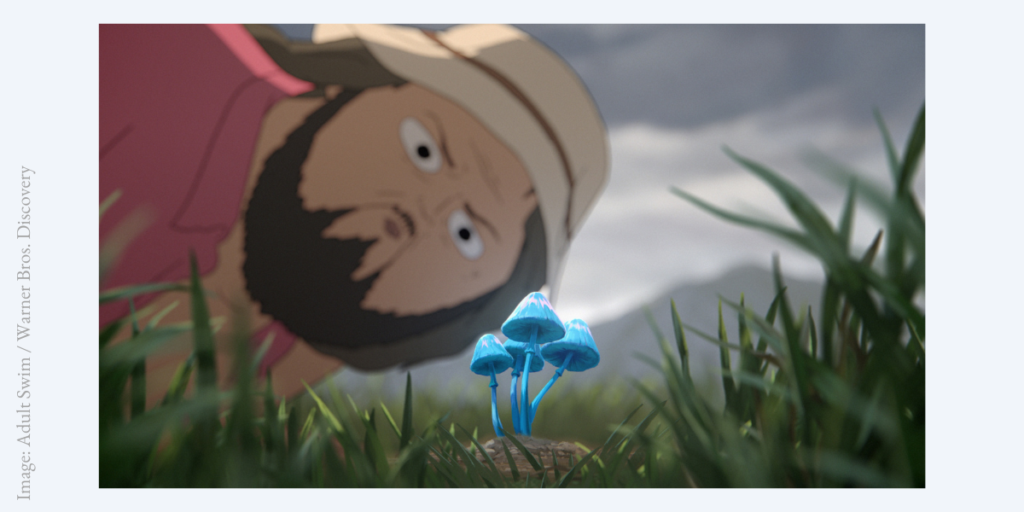
Josh Hardman, Psychedelic Alpha: How did you become interested in this topic?
Steve Hely: My co-creator Joe Bennett and I began with a thought experiment: what if there were a mushroom that could heal almost anything? Such a wonderful fungus seemed far fetched but not completely unbelievable. How would that ripple through the world of pharma, health care, insurance, law enforcement? Who would try and stop it, and why? How would it be tested, distributed? What kind of character would find such a thing? What kind of character would be threatened by it? Starting from there we developed the character of Marshall, his friend Frances, and the various other characters that populate this world.
Hardman: Are there any particular companies or characters that inspired your work here?
Hely: Joe and I were both interested in fringe science, out-of-the-mainstream characters like Terence McKenna, Paul Stamets, Albert Hofmann, Richard Evan Schultes, Wade Davis and the ethnobotanists who had pushed forward our knowledge of consciousness-altering plants and fungi.
I had written a book (The Wonder Trail: True Stories from Los Angeles to the End of the World) that was based around a trip through Central and South America, where I encountered many seekers and drug experimenters of all kinds, as well as the worlds of plant medicines, magic mushrooms, ayahuasca, coca, and other potent botanicals and fungi that are both a part of traditional life there as well as a powerful lure for psychedelic pilgrims.
The rippling implications that can emerge from that was interesting. Take for example the story of R. Gordon Wasson and Curandera María Sabina: his popularizing of what she was up to had dramatic consequences for her life and for the world once the story was in Life magazine. It seemed like a rich storytelling area.
The figure of RFK Jr. could've been a strange creation of our show had we been inventive enough to concoct him.
Hardman: Why do you think this storyline will interest viewers at this present moment?
Hely: Drugs, altered consciousness, folk medicine, these have always been exciting topics for storytellers, sometimes under different names like witchcraft. In our current moment, everyone is looking for alternatives to our health care system.
Big pharma’s provided with all kinds of wonderful things: I for one am grateful for the Covid vaccine, I got it as soon as I could and believe it has saved many lives. But the doubt and questioning and fear and suspicion around it, the pushback against what many perceive as a twisted set of incentives for pharmaceutical companies, is an electrifying topic right now. The figure of RFK Jr. could’ve been a strange creation of our show had we been inventive enough to concoct him.
Joe and I started working on this project before the pandemic made topics like public health even more central to our conversation. It does feel like we’ve hit a nerve, but that’s just because we were pursuing stuff that was interesting and exciting to us and seemed like it would make for great art and great drama and great comedy.
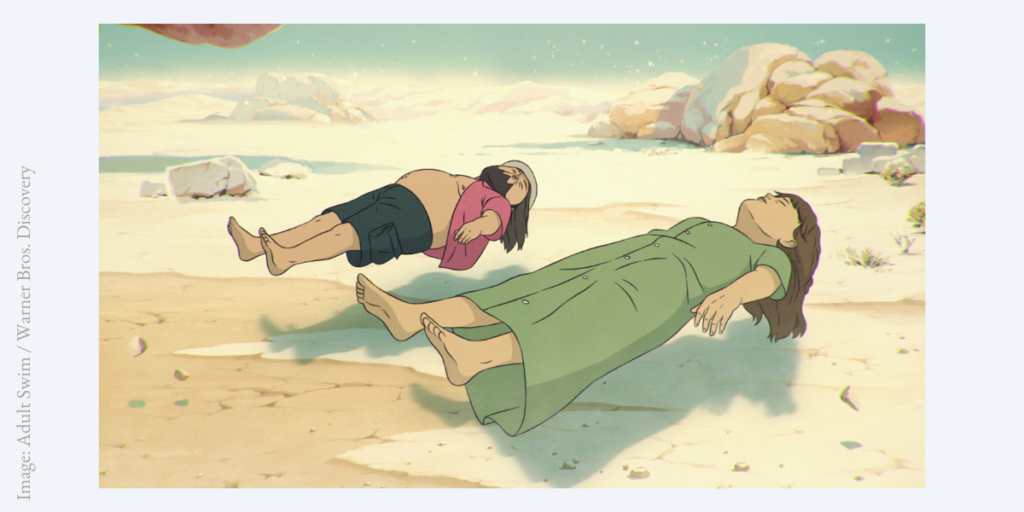
The first two episodes of Common Side Effects debuted on Adult Swim on February 2nd, with new episodes released weekly.

